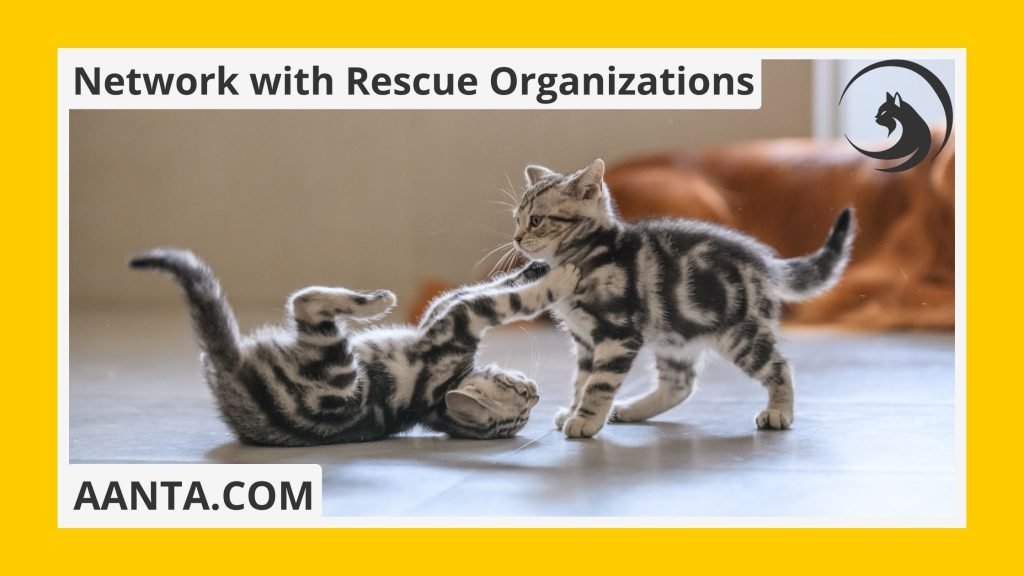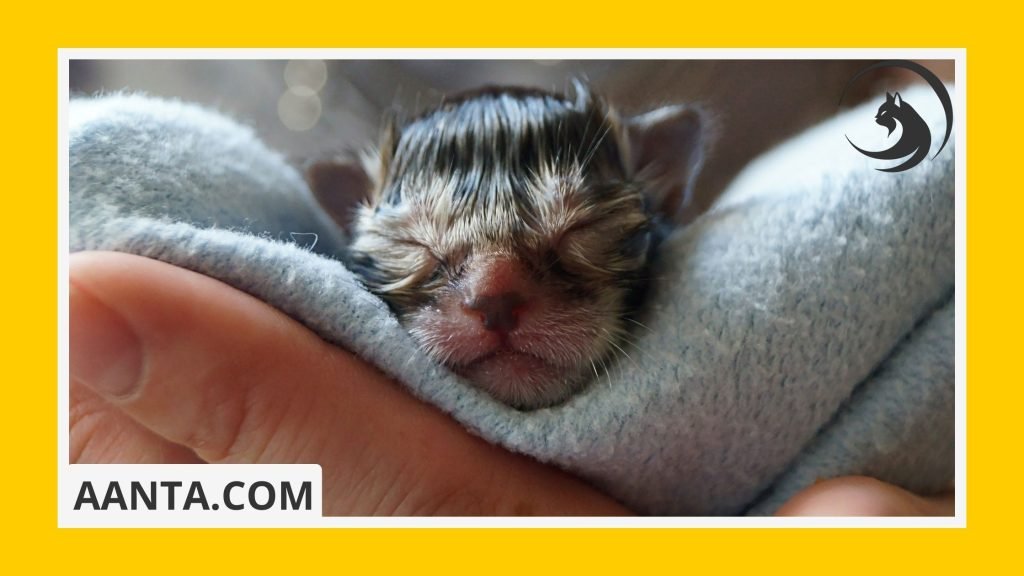Newborn kittens may melt hearts with their adorableness, yet they’re also diligent little creatures. Whether you’re caring for your own or have stumbled upon abandoned ones, making decisions about their future isn’t as simple as it seems. Nurturing them until they’re ready for adoption requires commitment. Ensuring they find a loving and stable home, where they’ll be cherished and cared for, becomes your duty.
Find a good home

1. The Comprehensive Handbook for Kitten Care
Prospective adopters are eager to learn about the background of the kittens. In case you have multiple kittens, providing individual photos with brief personality descriptions can be immensely helpful. Maintain a detailed record containing the following information, which you can readily share with potential recipients:
- Date of birth
- Medical history encompassing vaccinations and preventative measures
- Details of any surgical procedures, such as spaying or neutering
- Notable skills, including whether the kittens are accustomed to indoor living
2. Screening Potential Adopters for Kittens
When considering individuals outside your immediate circle for kitten adoption, conducting an interview is prudent. Opt for a meeting in a public setting and consider bringing along a companion. The objective of the interview is to gauge the person’s reliability in nurturing the kittens, their capability to fulfill their needs, and their suitability as long-term caregivers. Consider posing the following queries:
- What budget are you prepared to allocate for pet expenses?
- Do you currently have a designated veterinarian?
- Are there existing pets in your household?
- Are there plans to grant the kittens outdoor access as they mature? If yes, do you have a secure yard?
- Do you have children?
- If you rent your residence, are pets permitted according to the lease agreement?
3. Reaching Out to Animal Welfare Organizations
Should efforts to find a trustworthy adopter for the kittens prove futile, seeking assistance from a kitten adoption agency is advisable. Local animal shelters, humane societies, or rescue organizations might be willing to accommodate the kittens. Keep in mind that some may impose a nominal fee or might have restrictions on kitten intake.
Before resorting to surrendering the kittens to an animal shelter, ascertain whether it operates as a no-kill facility. Certain shelters may resort to euthanasia in cases of overcrowding or resource limitations.
Network with Rescue Organizations:

Comprising thousands of public and private shelters, rescue groups, spay/neuter organizations, and other entities dedicated to animal welfare, the Best Friends Network stands as a beacon of hope and collaboration in the realm of animal rescue and care.
Pioneering Compassionate Adoption Practices
The Cat Rescue and Adoption Network proudly collaborates with a diverse array of partners, including humane societies, various animal rescue groups, and public and governmental animal service agencies. Our shared mission? To facilitate the placement of animals into loving and permanent homes through our comprehensive adoption process.
Ensuring Comprehensive Care for Every Feline
At the heart of our efforts lies a commitment to providing unparalleled medical attention to our feline friends. From thorough disease testing to essential vaccinations, we spare no effort in ensuring the health and well-being of each cat under our care. Through these measures, we strive to guarantee the success and longevity of every adoption.
Championing the No-Kill Ethos
As staunch proponents of the no-kill philosophy, we stand firm in our resolve to rescue all animals deemed adoptable and treatable. Our unwavering dedication to this cause is evident in every aspect of our operations, as we work tirelessly to provide a haven for cats in need and pave the way for a brighter future for all feline companions.
Host Adoption Events:

Collaborating with a pet adoption event amplifies your promotional endeavors and fosters community engagement in celebrating pet adoption. Here are strategic planning pointers to guide you:
- Select a date conducive to high attendance, avoiding clashes with major social or sporting events, and opt for a time of year with favorable weather conditions.
- Ensure alignment among all participants regarding roles and responsibilities in event planning and execution. Maintain regular communication to synchronize event details and operations effectively.
- Identify shelters and rescues eligible for participation, ensuring compliance with requisite guidelines, such as non-profit status for rescues. Engage additional partners like local veterinary clinics or animal-centric businesses for enhanced support.
- Seek out sponsors capable of enhancing the event with special contributions, granting them opportunities for promotion. For instance, local businesses could cover adoption fees, sponsor pet microchips, or provide donations like pet supplies or merchandise.
- Determine whether participating organizations will convene at a single location or if the event will span multiple locations across the community simultaneously. If opting for a centralized venue, address logistical considerations such as city permits, amenities like water and electricity, provision of shade, restroom facilities, and parking requirements.
- Launch a robust promotional campaign several weeks in advance, leveraging local media outlets and social media platforms to disseminate information about the event.
- Enlist support from local celebrities, influencers, and government officials to amplify event awareness by sharing social media posts.
- Enhance the adoption experience by incorporating a designated area for families to capture photos with their newly adopted pets. Share adoption success stories on social media platforms to inspire other families to initiate or contemplate pet adoption in the future.
Kitten’s Language:

While cats may exhibit more subtle and enigmatic behaviors compared to dogs, their nature is not entirely inscrutable, despite lacking dog-like imitation. As you grow more accustomed to your cat’s behaviors, you may discern subtle shifts in their mood and health before physical symptoms manifest.
Vocalization
While some cats are less inclined to make direct eye contact, others can be quite vocal. Kittens exposed to frequent social interaction often develop increased vocalization tendencies as adults. Certain breeds, such as Siamese and Abyssinians, are known for their naturally talkative nature.
As cats age, their vocalizations may become more pronounced. Several factors could contribute to this change. Age-related conditions like dementia or vision impairment may induce anxiety or confusion in cats, prompting louder purring as a means of seeking comfort. Additionally, hearing loss might also lead to louder purring, as the cat struggles to perceive sound. However, it’s crucial to address any alterations in behavior seriously, and a visit to the veterinarian is advisable to rule out illness or distress.
Interpreting Vocalizations:
- The meow is multifaceted; your cat might employ it as a greeting, command, objection, or announcement.
- Growling, hissing, or spitting signals that the cat is agitated, frightened, angry, or defensive. It’s best to give the cat space.
- A yowl or howl (akin to a loud, strained meow) indicates your cat is in distress – perhaps trapped in a closet, seeking your attention, or experiencing pain.
- Purring typically signifies contentment. Cats may purr when happy, even during mealtime.
- Chattering purrs or growls are sounds your cat produces while perched by a window, observing birds or squirrels. This often reflects excitement or contemplation while engaged in these activities.
Follow Up and Support:

1. Nursing Kittens
Commencing at three to four weeks, nursing begins but requires several weeks to establish fully.
- Introduce kitten milk in a shallow bowl initially. Adhere closely to the product guidelines to ensure correct dosage, dilution, and temperature.
- Gradually incorporate small portions of wet cat food into the milk.
- Progressively elevate the proportion of food relative to milk until the kittens transition to solid food.
2. Separation from the Queen
It’s crucial to separate the kittens from the queen at the appropriate time. Avoid separation until they reach eight weeks of age, as they continue to learn from their mother during this period.
- Weaning the kittens from the queen should be a gradual process to prevent strain on her mammary glands.
- If the queen attempts to remove the kittens prematurely, consider offering alternative comfort items such as a soft toy.
- Premature separation from the queen and litter can lead to behavioral issues. Kittens may exhibit juvenile behavior like kneading or sucking as early as eight weeks if separated too soon.
CONCLUSION
Newborn kittens undoubtedly bring immense joy with their adorable presence, but they also demand meticulous care and dedication. Whether you’re tending to your litter or rescuing abandoned ones, thoughtful decisions about their welfare are imperative. Hasty disposal is not an option; instead, responsible stewardship entails nurturing them until they’re prepared for new beginnings in loving homes. Guaranteeing their placement in stable environments, where they’ll receive continuous care and affection, is of utmost importance.
By diligently following steps such as providing comprehensive information to potential adopters, conducting thorough interviews, and forging partnerships with animal welfare organizations, we can pave the way for bright futures for these furry companions. Let’s remember that each action taken to secure loving homes for kittens contributes to fostering a more compassionate and responsible community of pet owners.
FAQS
- How long do newborn kittens need to be fed every day?
Newborn kittens typically need to be fed every 2-4 hours around the clock, including overnight. - Can I bathe newborn kittens?
It’s generally not recommended to bathe newborn kittens unless necessary. Their mother will groom them to keep them clean, and bathing them can chill them or disrupt their delicate skin pH balance. If bathing is necessary due to contamination, use a warm, damp cloth to gently clean them. - At what age can newborn kittens start using a litter box?
Kittens begin to imitate their mother’s litter box habits at around three to four weeks of age. You can introduce them to a shallow litter box with non-clumping litter at this time, but expect some accidents as they learn. - How can I tell if newborn kittens are getting enough milk?
You can monitor the kittens’ weight gain to ensure they’re receiving enough milk. A healthy newborn kitten should gain weight daily. Additionally, their bellies should appear round and full after feeding, and they should be active and content between feedings. - What temperature should newborn kittens be kept at?
Newborn kittens need to be kept warm, ideally around 85-90°F (29-32°C) for the first week of life, gradually decreasing to around 75°F (24°C) by the end of the fourth week. Provide a warm, draft-free environment, and consider using a heating pad set on low or a heat lamp with caution. - When do newborn kittens open their eyes?
Kittens typically begin to open their eyes between seven to ten days of age. However, the exact timing can vary between individuals. - How can I help newborn kittens with constipation?
If a newborn kitten appears constipated, you can gently massage their abdomen or use a warm, damp cloth to stimulate their anal area after feedings. - What should I do if newborn kittens are not gaining weight?
If newborn kittens are not gaining weight or appear weak, consult a veterinarian as soon as possible. Failure to thrive can indicate underlying health issues that require prompt attention. - When should newborn kittens be dewormed?
Kittens should be dewormed starting at around two weeks of age and repeated every two weeks until they are eight weeks old. Deworming helps protect kittens from common parasites such as roundworms and hookworms. - How long do newborn kittens stay with their mother?
Newborn kittens should ideally stay with their mother until they are at least eight weeks old. During this time, they learn essential social and behavioral skills from her, which are crucial for their development.







